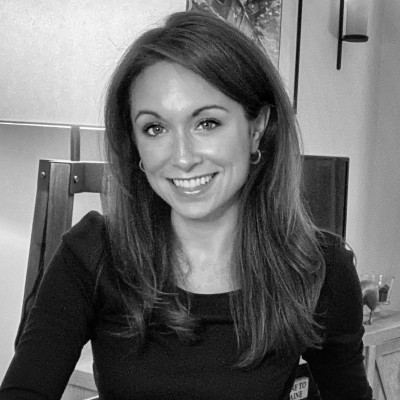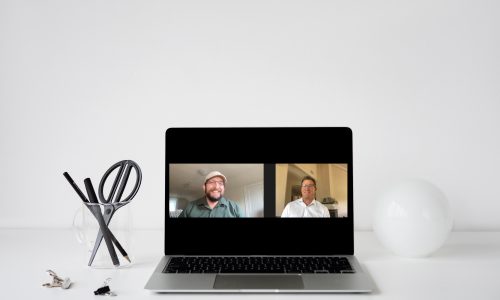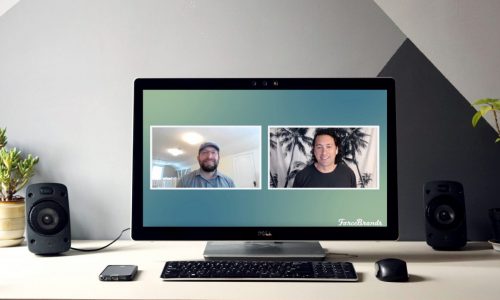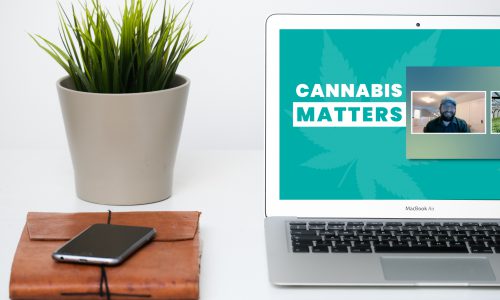Cresco Labs is poised to become the most important company in the cannabis industry. As one of the largest vertically-integrated multi-state cannabis operators in the U.S., Cresco has a strategic geographic footprint and one of the leading distribution platforms in all of North America.
We caught up with the company’s National Retail President Cory Rothschild who brings his background in traditional CPG to his expanding role at Cresco Labs. In this episode of Cannabis Matters, Rothschild explores the great cannabis opportunity, what to look for in new hires, and more.
Watch his interview with ForceBrands’ Client Strategist and series host Eric Rosen and read the transcription of the conversation below:
Eric Rosen: Welcome back to Cannabis Matters. We’re here today with Cory Rothschild he is the National Retail President at Cresco Labs. Cory, thanks so much for carving out the time to be with us today.
Cory Rothschild: Absolutely it’s great to see you again and to be with you.
ER: I guess to kick things off, I’m really curious, you came from the world of mainstream CPG. Where were you and what drew you into cannabis? What did that journey look like?
CR: Before this, I was a Gatorade. I was leading consumer engagement of Gatorade across all of our content, our media, our experiential, and really had a background in traditional brand management and really working in consumer industries my entire career. As far as what drew me to cannabis, it was really the bigness of what it’s going to do in terms of like a consumer product to the world over the next 20-30 years. So like if you think about the number of occasions that cannabis meets in people’s lives right it is an alternative to migraine medication, it is used for pain management in very severe cases. It also, from a wellness perspective, helps people sleep, and helps with anxiety. It is a calorie-free, hangover-free alternative to White Claw and it is everything in between and so when you think of just about the number of places that cannabis can exist in people’s lives, it is so much more vast than any other category that exists today on Earth. I just think from my standpoint you multiply those two together and you’re talking about the single greatest driver of consumer packaged innovation that we will have seen in a really long time and it already is driving more incremental growth than the largest companies that we all know by name and so you know that means it will be normal. It means that it will be some of the largest brands on Earth and it means that we need brands because a tremendous amount of education is required and to a certain extent perception change for people who have a legacy perception of the plant.
If I said to you, what category do you want to be in that’s the largest growth category over the next 20 years where you could establish what will be the largest brands on Earth and help the most number of people have a healthier, happier life and by the way — what I’m describing is cannabis. I think it was sort of like a type of thing that I couldn’t not do.
ER: This really is an opportunity of a lifetime of lifetimes and I feel equally blessed to be here and be part of it. How is cannabis embracing and how is Cresco embracing traditional CPG models from other verticals. What are you saying that’s similar? How’s that coming to life and is there anything that’s different that’s just net new that you marvel in?
CR: For those who aren’t as familiar with cannabis, we have to grow our own commodity, make that into a product, distribute that product ourselves, and in some cases sell it in our own retail. The level of difficulty of you know if you told me at Gatorade we have to grow our own sugar before we make — and I hope that sugar crop works out for you because it’s a really important input to making Gatorade that then we have the distribution challenge of moving around the country or the state, I would say well that’s insane. But that’s the world we live in and I think the level of complexity and sophistication that’s required to run our business in a stable way is really hard, even when you think about you know the core drivers of awareness of a brand, which for most brands is at the point of sale, it is through customer marketing in the relationship you have with your retail customers, it’s how the brand presents itself.
ER: From a marketing standpoint, what are today’s winning cannabis brands getting right and where are you seeing them miss the mark?
CR: First and foremost, consistency matters and is not inherently something that’s not found in cannabis. The capability to create consistency in a product is a prerequisite to creating a brand that is an experience that people can expect and understand and be drawn to over and over again. I think consistency in literally the product itself but also the brand itself is super important. When I think about brands that are really strong, I think about the ability to have a consistent point of view, a consistent iconography and design identity that is reinforced in someone’s mind over and over and over again and it is apparent in all the channels in which that person you know interacts with that brand whether that’s on the packaging or in advertising and so in the same way that I admire consistency in brand building of Starbucks, Nike, Gatorade the lack of change in those things is really important and so establishing that identity and living with it, especially when you’re trying to teach people the brand in the first place is really important. The second thing I would say is like actually standing for something. A brand has to have a point of view and a belief system that connects with a consumer set and there are definitely brands out there that are doing that and then the last part which is important for any brand is ubiquitous distribution is your number one driver of awareness and understanding. Running into it at the shelf, seeing it on menus that is as much the secret sauce to driving an understanding of a brand as something like advertising or a specific channel. There are brands that are doing that well.
I think where there are missteps in the world of cannabis is there’s a flashiness of trying to get attention that can cause you to go sideways on any one of those. A constant reinventing of your brand is often not necessary and creates confusion in both what that brand stands for.
ER: How do you leverage data from an actionable insights perspective in cannabis today maybe in ways that are similar to your prior life of Gatorade and maybe ways that are different?
CR: We have an incredibly data-rich environment to not only understand the performance of our own brands and our competitor’s brands to understand the consumers directly and their profiles and the choices they make not just on ours but in conglomeration with different and how they respond to pricing and promotion and assortment and so like the data of that ecosystem, the tests and learns that can come from that, are so unique and so unique to this category to have that so I would say like that’s the big thing if you’re sitting out there wondering about the advantages of data in cannabis like to own your own retail which is often required in some states structurally is just you know there’s so much that you can get from that and then extrapolate to running your business elsewhere or helping other retailers by being a great brand to them.
ER: Teams in cannabis are really no different than teams in any other industry however the velocity that cannabis moves at… there’s the speed of light and then there’s the speed of cannabis. Walk us through how you think about the art and science of building and hiring world-class teams in such a fast-moving industry.
CR: You’re building an industry, you’re building a company — that in and of itself is monumental. You’re doing it with structural government and compliance consideration so every challenge that you can imagine you’re sort of up against so by definition you need someone who is a problem solver by nature and who’s comfortable with just sort of like banging down those walls to really fight to make something that’s pushing you know the gravity or inertia is pushing against you and so there’s a spirit of like being okay and excited about this challenge that keeps you going when you’ve solved 100 and you’ve got another one and another one and it’s Friday afternoon like it is today.
From my standpoint of our company, we’re in a teenage position. We’re growing like crazy and in many ways, we need a startup mentality and how we continue to be nimble in an industry that’s hard to predict and will continue to evolve. At the same point, we have thousands of people in our company managing a tremendous amount of projects and scale and research. We’re a giant company so process and structure are absolutely needed. It’s necessary. Scale and future planning is critical and so it really is trying to find people who are comfortable swinging between both of those in a moment-to-moment or day-to-day basis.
ER: I remember in B-school one of my professors was like, all right you’re going to be in like in the middle of things and like you’re going to have imperfect information and you’re going to have to figure it out.
CR: Of course. I’m like so thankful for my business school experience because it was based on the case method where you just had no — you only had the information that the protagonist had in that moment and you had to make a call and I think that I live a case study five times a day.
ER: So this is great. On that note, so let’s fast forward 10 years and imagine that you and I are back in B-school and we’re reading a case study put out by Harvard Business Review about the cannabis space. If you think about the inflection points that you’ve seen to date, the major paradigm shifts in the industry, what’s the juiciest business scenario you can imagine professors giving students to unpack from a case study standpoint?
CR: My honest answer is I don’t know how to pick, like I genuinely don’t know how to choose. If I said like we integrated six mergers and acquisitions last year and how do you ingest and do that thoughtfully, you could do a business case on that. If I talked about how to build and scale a team from zero to 75 marketers in two years, you could do a case study on that like if I said how do you think about demand planning in a sales environment that’s so unknown and never been done before, how do you supply planning when you grow your own inputs. It is truly the hardest and most exciting of all these challenges, which you either have the personality that is the flame that never ignites even when you’re tired or it never goes out even if you’re tired at the end of the week or that sounds miserable to you.
ER: This is a rising tide industry. It’s growing like gangbusters. What advice would you give anybody that’s a business professional that’s not in cannabis yet, but thinking about getting into it and starting to go through the exploratory processes to make that happen. What would you tell someone who wants to get into the industry today?
CR: I would say first and foremost just like you would with any industry like try to experience it for yourself. Go to a dispensary, walk through the doors. I promise it’s not as scary as you might think and take it in as a consumer to understand for yourself what challenges and opportunities you see and whether or not you think that you could be a part of the solution against that. The second thing I’d say is I have a lot of people ask me if I wait will it be too late to get into the industry or is it too early and is this going to hurt my reputation and my future. I get both sides. My answer would be like one, I feel like I’ve run a marathon and yet I also feel like I’m at the starting line so this is still the infancy of this industry even at a point where it’s 20 billion dollars this is just the beginning. Four out of five people consuming cannabis are consuming it through illicit channels. This is just the start so don’t feel like you’re too late.
ER: There’s a great quote that I caught of yours in Adweek saying something along the lines of we don’t need to convince people to believe in cannabis, we need to convince them to buy legally. How do you foresee that unfolding?
CR: I mentioned four out of five people who consume cannabis are not consuming in legal channels, which is an amazing opportunity for the legal channel. You have people actually doing a certain behavior they’re just not doing so through your own business. My perspective is the first thing is the price. Price is going to be the number one driver of people’s interests. I think people would love to buy legally, would love the comfort and safety of buying tested product and buying it in a legal form but we have to through scale and through efficiency drive down the price of cannabis so that it’s a reasonable alternative to how people purchase that today and that’s extra important when the level of tax on our products is as much as 40 percent in some states so the burdens on the industry to really drive efficiency, drive down price for consumers and then I would say access. It is very convenient for a lot of people in New York City to have someone arrive in 20 minutes on a bike and allow them to actually see and experience the product before they commit their dollars to it. That is very different than walking down the street in a state where you don’t have delivery, to wait in line to get to a counter to pay for something you’ve never seen and pay tax. That is a different experience and people are making rational decisions and it’s on us to innovate the industry to compete with a formidable competitor.
ER: Cory, I can’t thank you enough for carving out the time today. Thank you for being here with us. I’ve enjoyed the heck out of this conversation and look forward to watching the evolution of Cresco over the months and years to come.
CR: Me, too. Thank you for having me.
ER: One hundred percent. Have a good weekend.
Catch up on more episodes from Cannabis Matters here.
Interested in learning more about the cannabis industry and how ForceBrands’ cannabis practice can help grow your business or career? Reach out to Eric Rosen to start the conversation.






